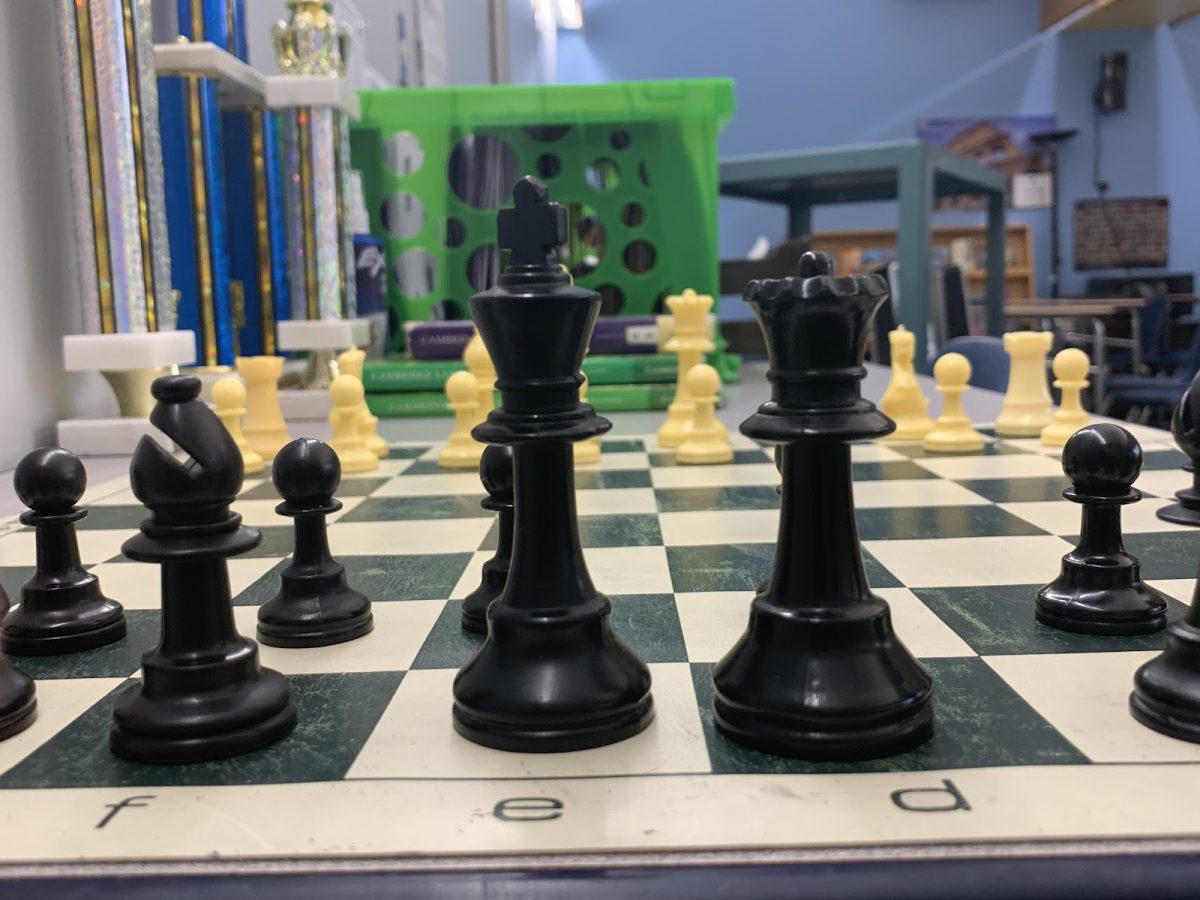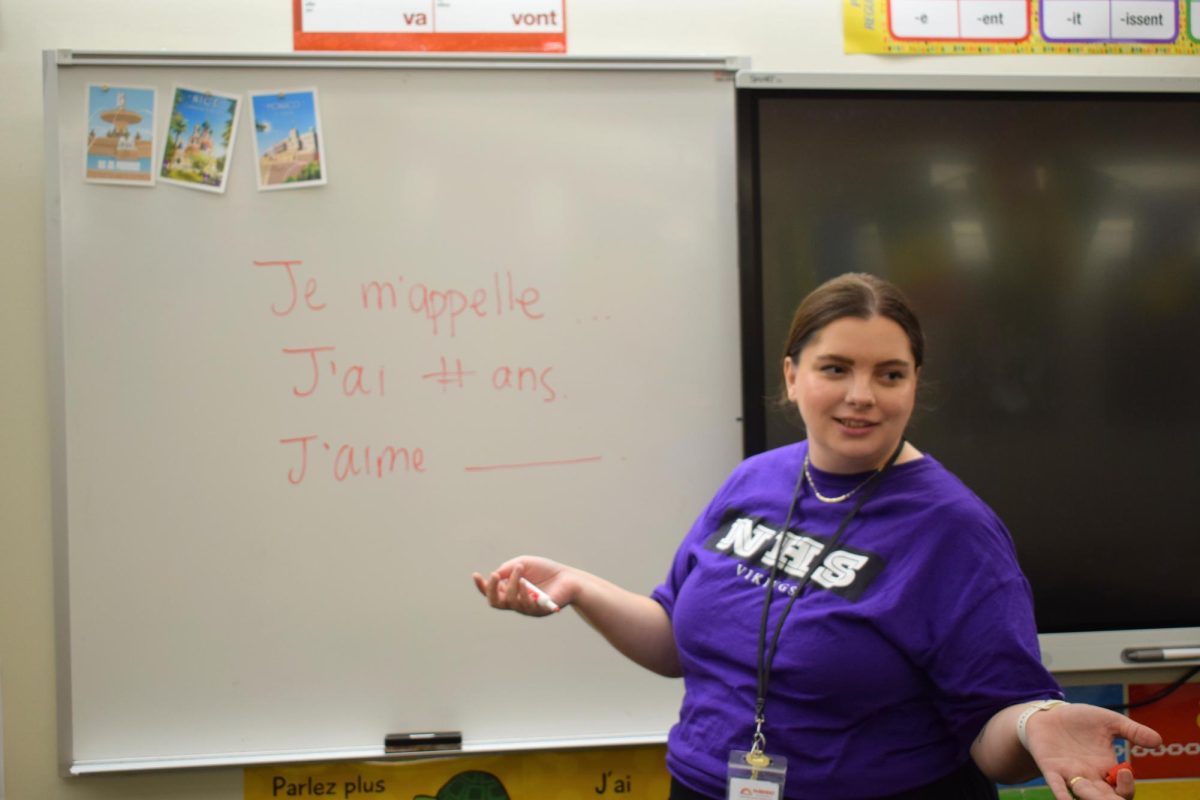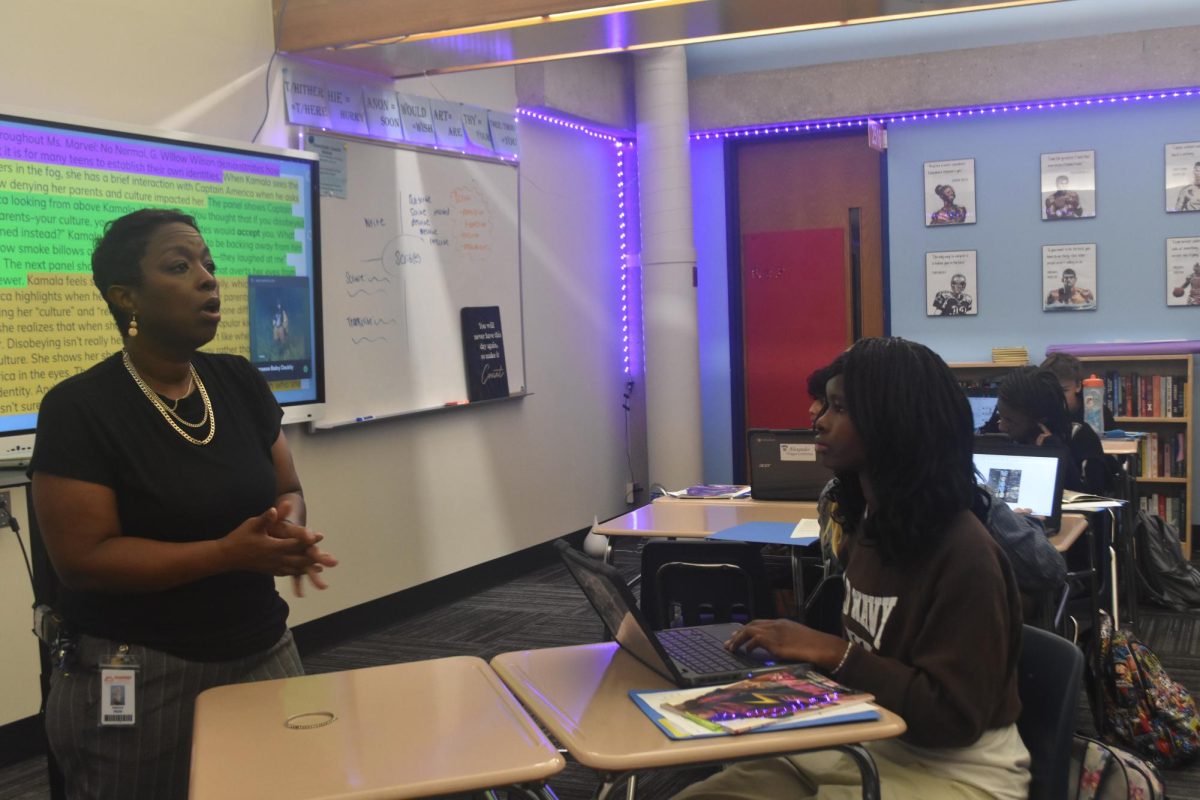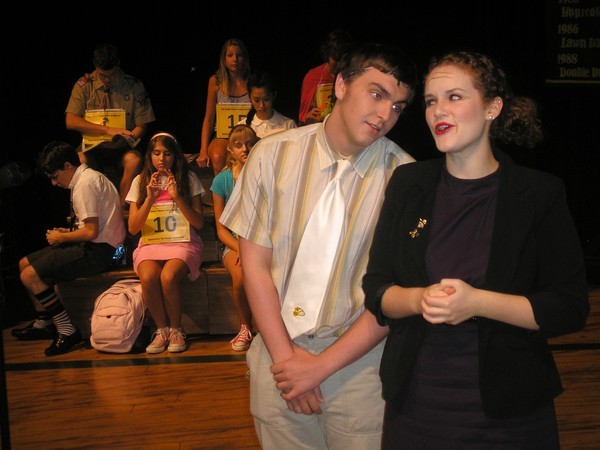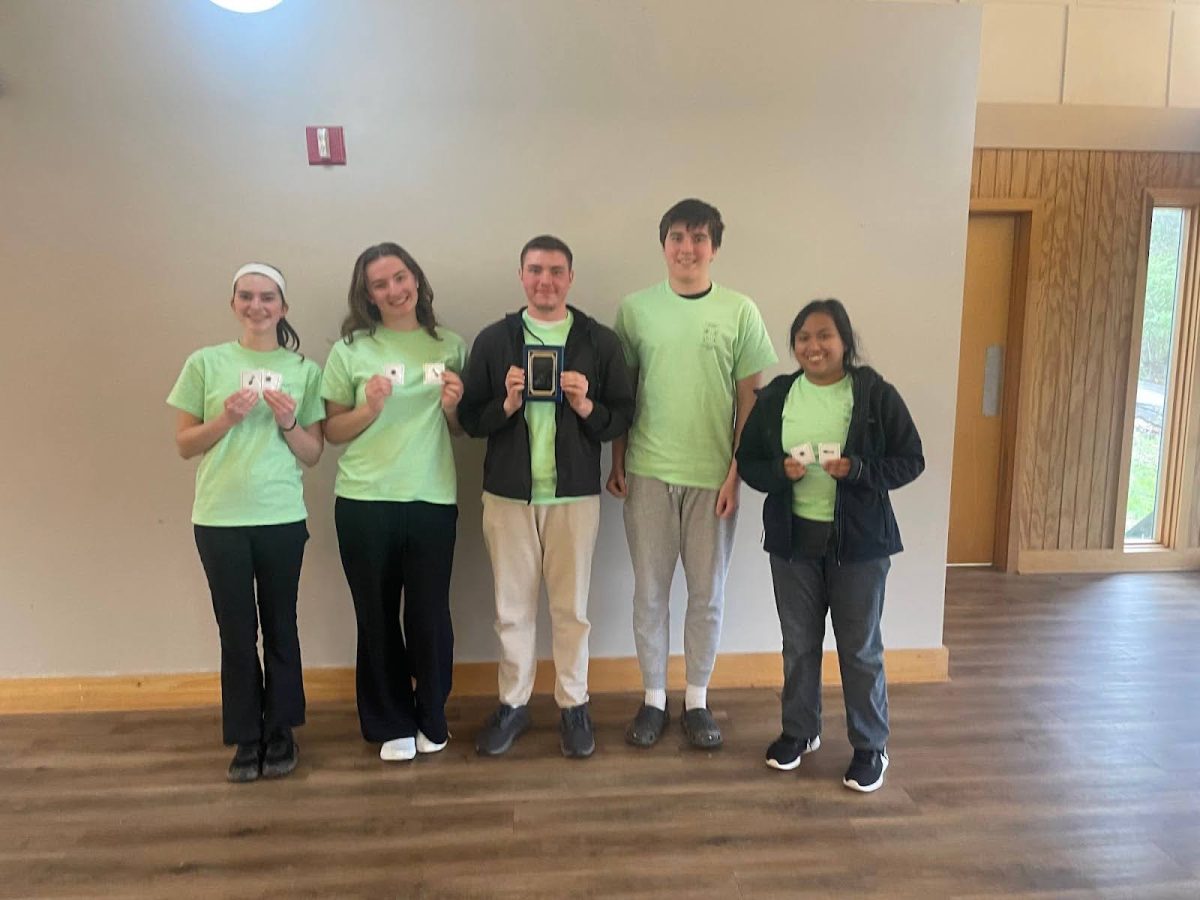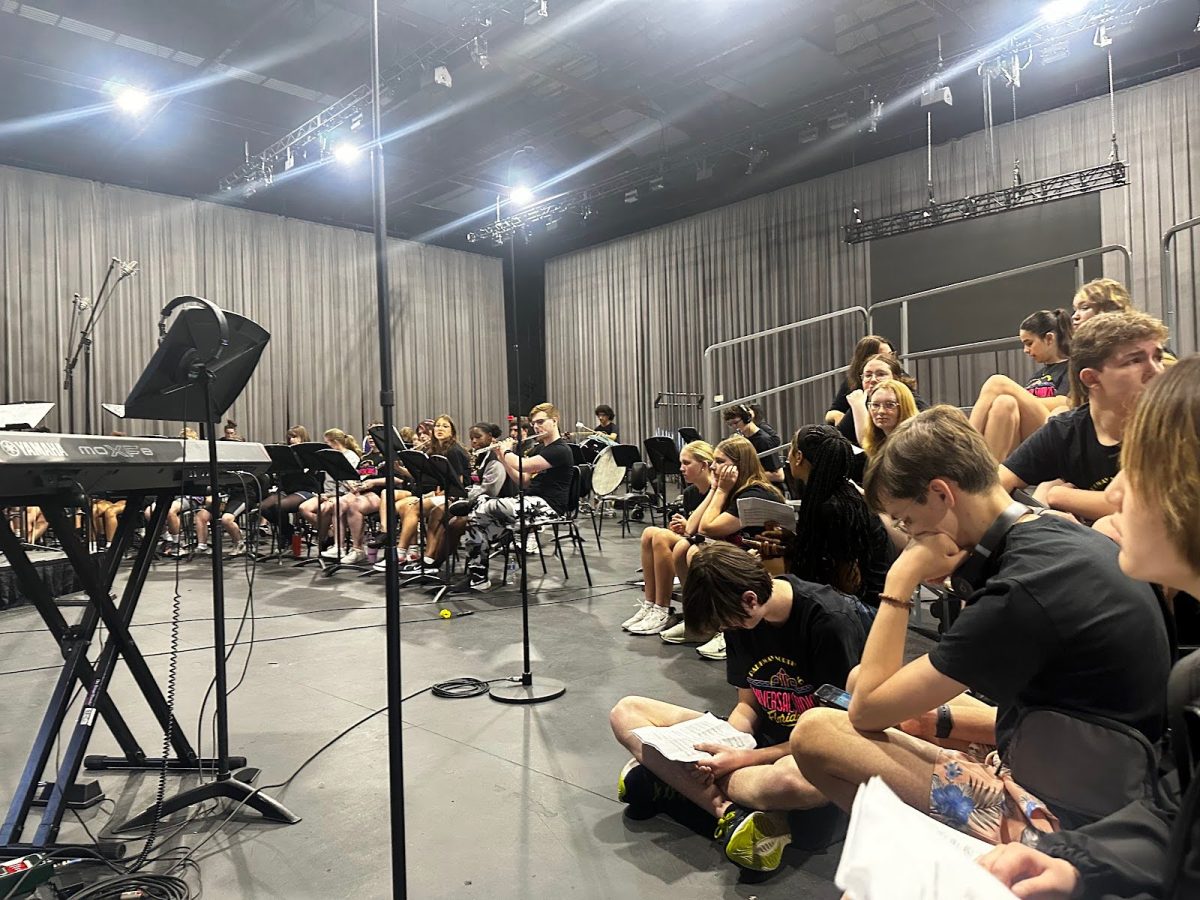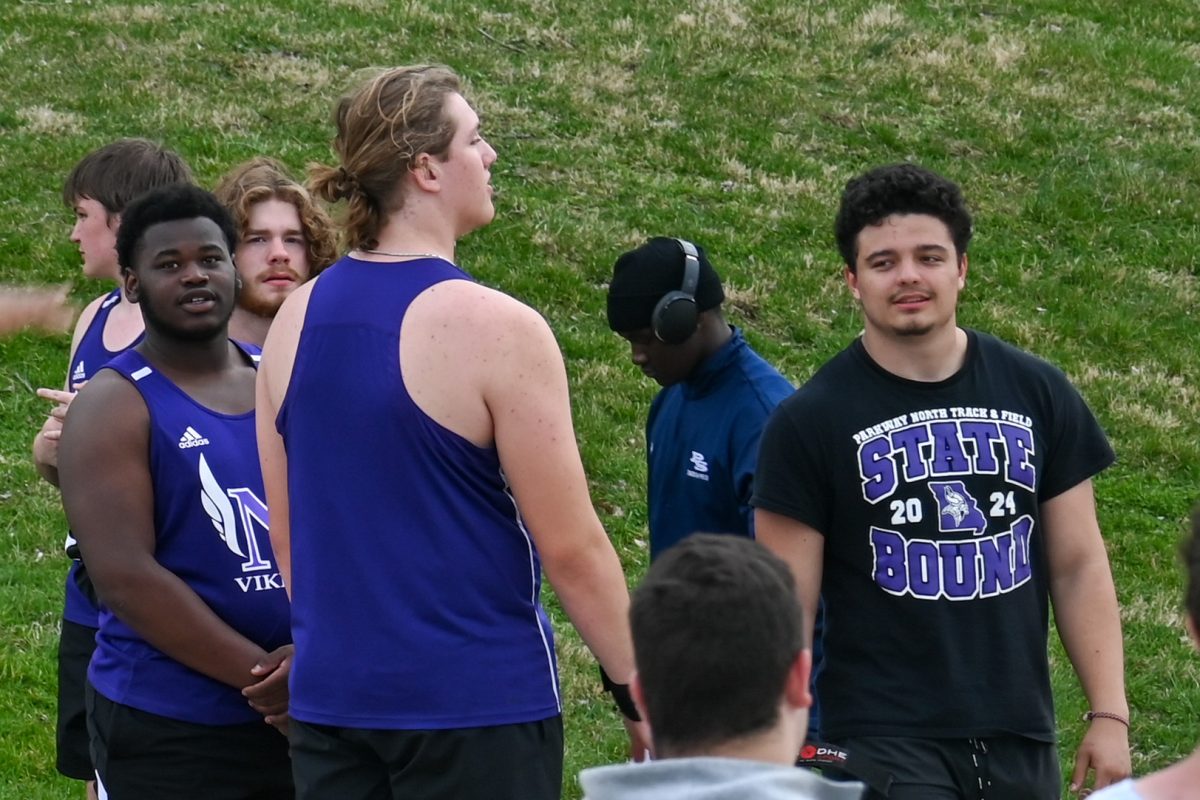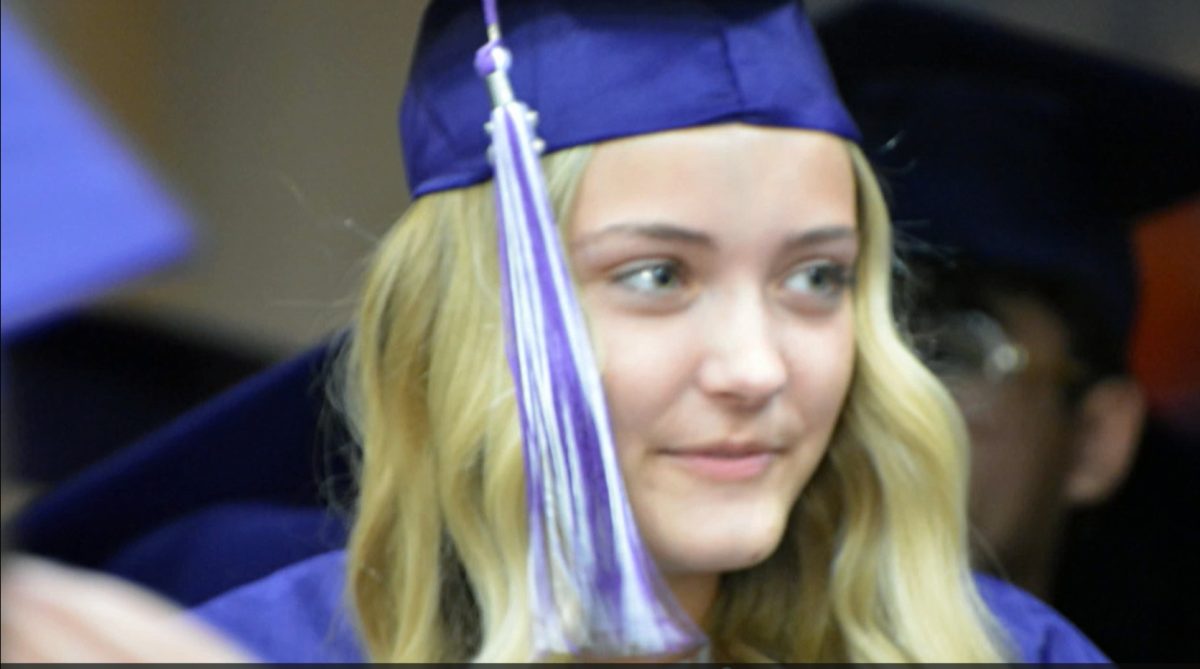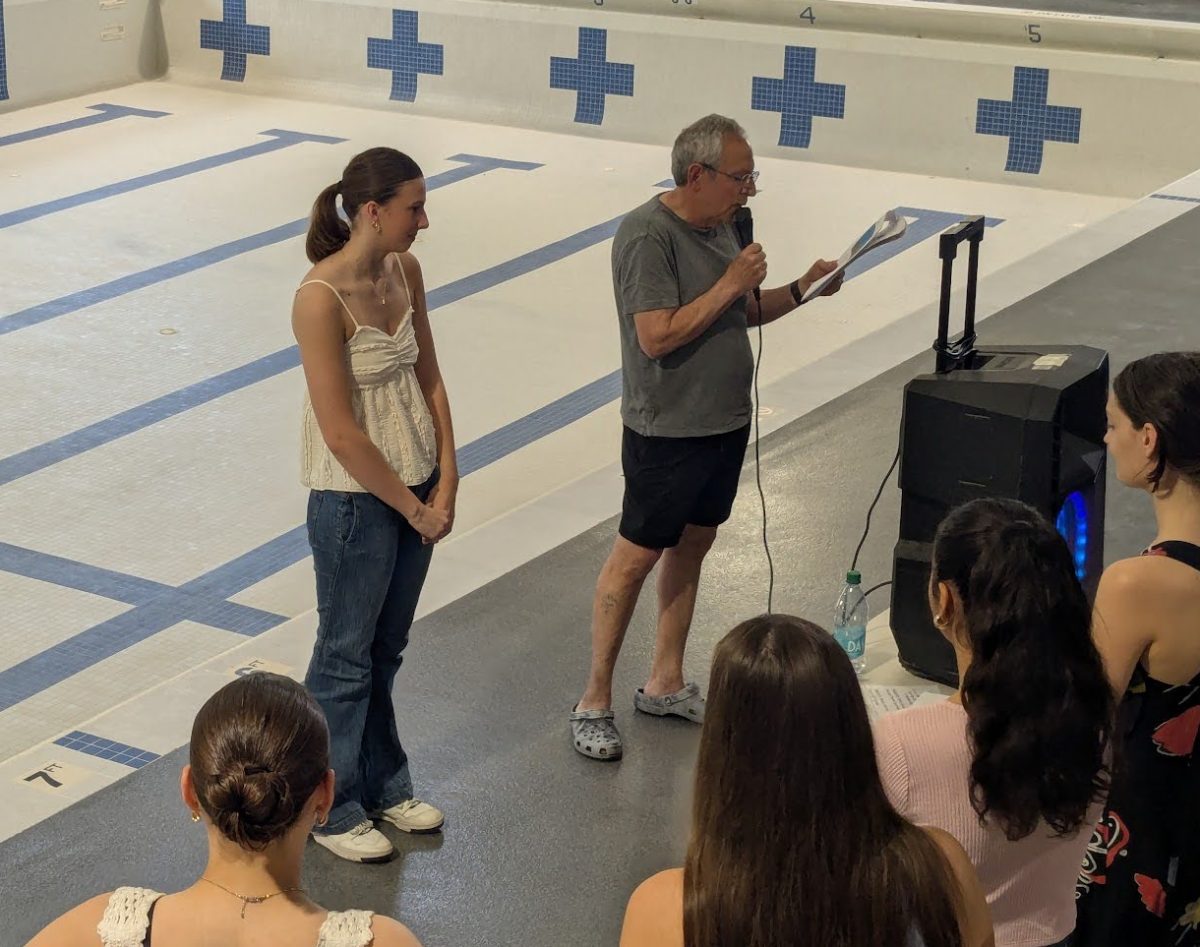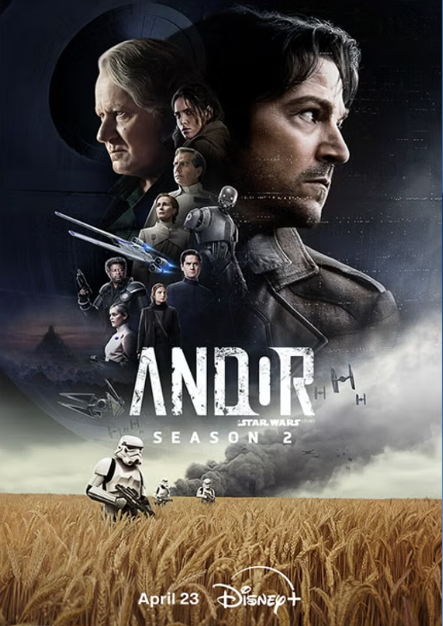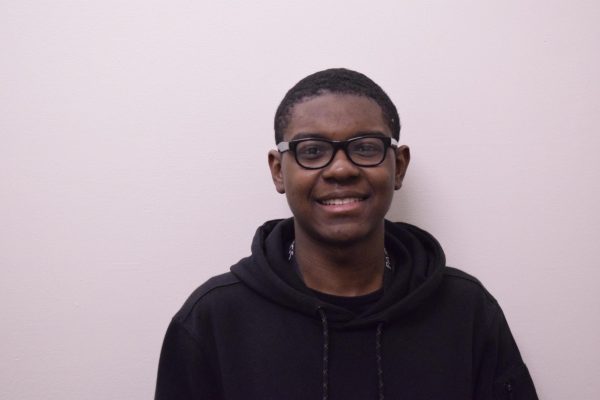Every Wednesday after school, the chess club hosts a spot for students to practice playing chess with other people. This is all in good sportsmanship and to have fun with others who share an interest in the hobby since, currently, Parkway North is not participating in tournaments..
“The game is complex, so complex that you can’t really come to the bottom of it, but it responds to your effort. So if you work hard, you can open up new parts of the game or gain new understanding. And that sense of progress is very satisfying,” sponsor Adam Stiller said.
The club welcomes both expert and beginning players of chess, with an abundance of skills clashing. This boosts the gameplay for the viewers and the participants with opportunities to win and learn the complexities of the game.
“If it’s a short match, the players have a strength that I can understand. It’s exciting. It’s hard to explain to somebody who doesn’t play chess,” Stiller said.
Last time, they did a “bughouse” where four players on two teams compete in a 2vs2 style setting. This changes the pace of the game from a long wait into a fast action between parties with multiple elevating moves. Other rules that are different than a traditional chess match also make the game more interactive.
“So that it really changes the feel of the game. It’s much more fast and risky and social,” Stiller said.
The intensity of the matches are speculated to be about as fast a match could go. A faster match keeps the audience more interested compared to a slower speed of chess.
“If it’s a standard classical game, where the players are taking four hours for all their moves, it’s really boring and I’m going to go do something else,” Stiller said.
However, playing fast isn’t for everyone, especially new players who are still learning the moves and thought process of the game.
“If I play fast, there’s a greater chance of me losing; if I play slow, the chance of me winning would be higher,” sophomore Laila Smith, who is new to chess and is going to the club, said.
Sometimes chess matches between two people are timed in a more fast paced manner with a timer, so they are speedy. Other times, they can be slower with more thoughtful actions.
“It can be very boring and slow depending on who you play,” Smith said. Typically, the more experience a player has, the faster the game goes.
“People who have been learning about chess and playing for a longer time would be more fun [to watch]. But if they were beginners, it might be less exciting,” Smith said.
While Stiller would love to see a chess elective offered, that doesn’t seem likely in the future. In the meantime, students who are interested can come watch and play chess after school with the chess club.


